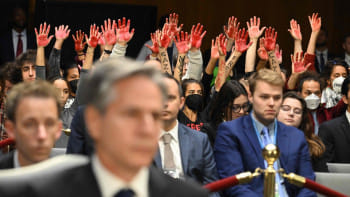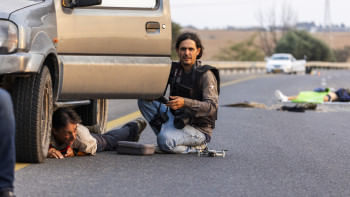Skipping the Coke Studio Bangla concert amidst Gaza Crisis

With social media awash in the Israel-Palestine conflict in recent weeks and many expressing their outrage over the unfolding genocide in Gaza, the idea of boycotting certain consumer-based corporations has re-emerged. This is being done through the Boycott, Divestment, Sanctions (BDS) movement, to end international support for Israel's oppression of Palestine. The idea is, by putting some financial pressure on large businesses complicit in Israeli violation of palestinian rights, perhaps they will in turn put pressure on the Israeli government and open up an opportunity for a ceasefire. Coca-Cola, McDonalds, KFC, PepsiCo, IBM, Nestle, HP and many more are just some of these corporations.
Right now, Coca-Cola's involvement has sparked a conversation about today's Coke Studio Bangla concert. An ethical question has emerged in this discourse: should one attend the concert?
I've chosen not to attend as part of my role to do whatever I can from thousands of miles away.
If you are someone who has been disturbed by the horrors Gaza is facing, it also comes with the feeling that you can't do anything about it. Posting on digital platforms to raise awareness might feel even less impactful the more you keep thinking about it. Everyone knows what's going on, but nothing can be done on an individual level that will have any visible positive impact. Especially residing in Bangladesh, which never even had a diplomatic relation with Israel, what can really come out of our activism and awareness? What does it all matter? We can't really stop the genocide… These thoughts are ever-present.
Despite these plaguing thoughts, as we feel deeply connected with the affected Palestinians, we may try to do our part by having conversations about the persecuted, keeping their stories alive, and trying not to get desensitised. The other day, a friend of mine said, "The day we see a video of a dead kid or a body without a head or a screaming parent sobbing for their lost child, and scroll up without feeling anything, that day will be dreadful, because it means that a big part of the humanity has died."
While protests continue, there is a growing tendency for some to highlight the inactivity of others. It's good to be vocal about these issues, sharing ideas about what can be done to play an individual role or how to unite for the cause, but when you attack others for not doing things your way, you are moving away from the goal. All of us have one mission: stop the atrocity as quickly as possible and get the affected people the required humanitarian aid; it is not to find out who did what for the cause. We need to be considerate about how different people deal with trauma and suffering differently, and it's worth remembering, people may not even be aware about Coca-Cola being complicit in Israel's actions.
A friend of mine who is always vocal about social issues thought about writing an article about the crystal-clear Israeli atrocities in Gaza. But in her current position, she can't do that without jeopardising her current state of life, as pro-Palestinian voices of foreign nationals are being silenced in some countries. More importantly, it will derail her from a future where she will have more opportunity to help others. All this, however, doesn't stop her from being active in other ways that are maybe not as visible to everyone else.
Another friend is playing at the said concert today. I know him to be an empathetic person, but to not play at the event, which is comparatively huge in the context of Bangladesh, would just be plain bad for his career. Now you may argue, how bad can skipping out on this one work opportunity be? There are examples of people, like the US State Department official, who resigned from his secure job when it came to this ethical dilemma.
For that, I have a counter-argument. With all that we know is happening in Gaza— bombs decimating hospitals and schools, with children in them—did you still not try to have a healthy, tasty meal? Did you not look for ways to be happy? Did you not study or work to pay your bills? I know I did. That is the harsh reality. None of us halt our days until misfortune directly falls on us. Because we simply cannot afford to. Or maybe, as a collective human society, this is where we've come to.
We are not coming down to the streets to claim back our own democracy for the upcoming election; we think that is a fight for the political parties. But we definitely would if our family or livelihood were at stake. We did not match shoulders with the garment workers' demonstrations for a minimum wage, where multiple protestors died just because they were demanding an earning needed to buy the bare essentials. We did not go stand with them because it does not directly concern us. It's important to be clear about these facts, as important as it is to take action collectively and individually in the name of humanity.
Even after taking all the nuances into account, one thing is clear: we must do all we can to stop this genocide. No matter how small we might feel on an individual level, collectively we are powerful. There should be no doubt about that, especially when we control our spendings on these conglomerates, some of which are richer than the majority of the world's countries. If enough of us unite and stop purchasing from these companies, they will have no choice but to pressurise governments to formally take a stronger stance against the Israeli occupation of Palestine.
So let's create that fundraiser, participate in the protest, hold that human chain, watch that Palestinian documentary together, go to the concert or exhibition for Palestine. But let's not poke and shame those who are silent, but rather invite them in a manner that encourages and empowers them to stand with us in a heartfelt effort for a free Palestine. Let's do it all in collaboration with each other. Because that's where our power lies.
Monorom Polok is a member of the editorial team at The Daily Star
Views expressed in this article are the author's own.
Follow The Daily Star Opinion on Facebook for the latest opinions, commentaries and analyses by experts and professionals. To contribute your article or letter to The Daily Star Opinion, see our guidelines for submission.

 For all latest news, follow The Daily Star's Google News channel.
For all latest news, follow The Daily Star's Google News channel. 










Comments